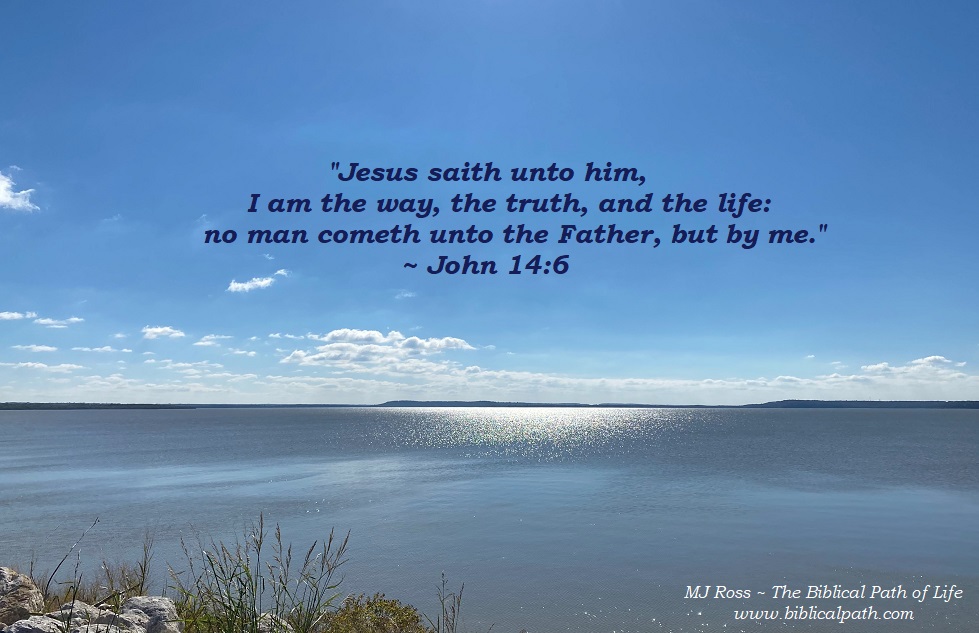
John 14:6
There was a very religious man, a Pharisee, named Saul. He witnessed an amazing defense of the Gospel Message of Jesus by Stephen that ended in Stephen’s death. When Saul heard of this new “way,” he actively sought to stop it. Although this may have sounded commendable, he was wrong in his thinking. Saul set out to persecute this new way, putting people in prison (see Acts 8:3). However, in reality, see what this caused: “Therefore they that were scattered abroad went every where preaching the word” (Acts 8:4).
Saul received special permission to go to Damascus to bring any of “this way,” bound to Jerusalem. As he went, he saw a great light and heard Someone call out his name. When Saul asked who it was, he found out it was Jesus, the one whom Saul was persecuting. When he heard from Jesus, Himself, Saul had much to consider. Jesus told him, to go to the city and wait (see Acts 9:6b). Saul went to the city and waited. “And he was three days without sight, and neither did eat nor drink” (Acts 9:9).
The Lord sent a certain disciple named Ananias to see Saul. Saul received his sight, and more importantly, he received Jesus into his heart and life. Soon, he was no longer called Saul, but Paul. He became a voice preaching the truth of Jesus. He recorded much of the New Testament for us to read today.
Later, when he was given the opportunity to share just what had happened to him before a great crowd of people (who wanted to kill him), see how he did this.
- Paul briefly reminded them of the sinner he was,
- He spent time explaining the specific call Jesus made to him,
- He told of his personal response,
- Then, he told of the particular job Jesus gave to Paul to accomplish with his life.
- Paul briefly reminded them of the sinner he was:
“1. Men, brethren, and fathers, hear ye my defence which I make now unto you … 3. I am verily a man which am a Jew, born in Tarsus, a city in Cilicia, yet brought up in this city at the feet of Gamaliel, and taught according to the perfect manner of the law of the fathers, and was zealous toward God, as ye all are this day. 4. And I persecuted this way unto the death, binding and delivering into prisons both men and women. 5. … and went to Damascus, to bring them which were there bound unto Jerusalem, for to be punished” (Acts 22:1-5). Gamaliel was a doctor of the Law of Moses, and he had at one time been Paul’s teacher. Remember Paul was one of the religious leaders that had hated the Christians. Before Jesus called Paul, Paul persecuted any who believed or taught of “this way.” “This way” in verse 4 refers to what Jesus had said in John 14:6: “Jesus saith unto him, I am the way, the truth, and the life: no man cometh unto the Father, but by me.” Jesus is The Way.
- He spent time explaining the specific call Jesus made to him & he told of his personal response:
“6. And it came to pass, that, as I made my journey, and was come nigh unto Damascus about noon, suddenly there shone from heaven a great light round about me. 7. And I fell unto the ground, and heard a voice saying unto me, Saul, Saul, why persecutest thou me? 8. And I answered, Who art thou, Lord? And he said unto me, I am Jesus of Nazareth, whom thou persecutest. 9. And they that were with me saw indeed the light, and were afraid; but they heard not the voice of him that spake to me. 10. And I said, What shall I do, Lord? And the Lord said unto me, Arise, and go into Damascus; and there it shall be told thee of all things which are appointed for thee to do. 11. And when I could not see for the glory of that light, being led by the hand of them that were with me, I came into Damascus. 12. And one Ananias, a devout man … 13. Came unto me, and stood, and said unto me, Brother Saul, receive thy sight. And the same hour I looked up upon him. 14. And he said, The God of our fathers hath chosen thee, that thou shouldest know his will, and see that Just One, and shouldest hear the voice of his mouth. 15. For thou shalt be his witness unto all men of what thou hast seen and heard.” (Acts 22:6-15).
- And then the particular job Jesus gave to Paul to accomplish with his life:
Paul (Saul) was saved when Jesus called him, and he responded to that call. However, God had a job for him to do. “18. And saw him saying unto me, Make haste, and get thee quickly out of Jerusalem: for they will not receive thy testimony concerning me. … 21. And he said unto me, Depart: for I will send thee far hence unto the Gentiles” (Acts 22:17-21). Jesus called Paul, he believed and was saved, and then God sent him to preach Jesus – primarily to the Gentiles.
This is a good basis for anyone to use who will give their testimony of the time they gave their heart and life to Jesus. Spend time understanding how to simply share. A personal testimony of when Jesus called upon one’s heart is pivotal in witnessing to someone else.
Have you ever shared your personal salvation experience with anyone else?








